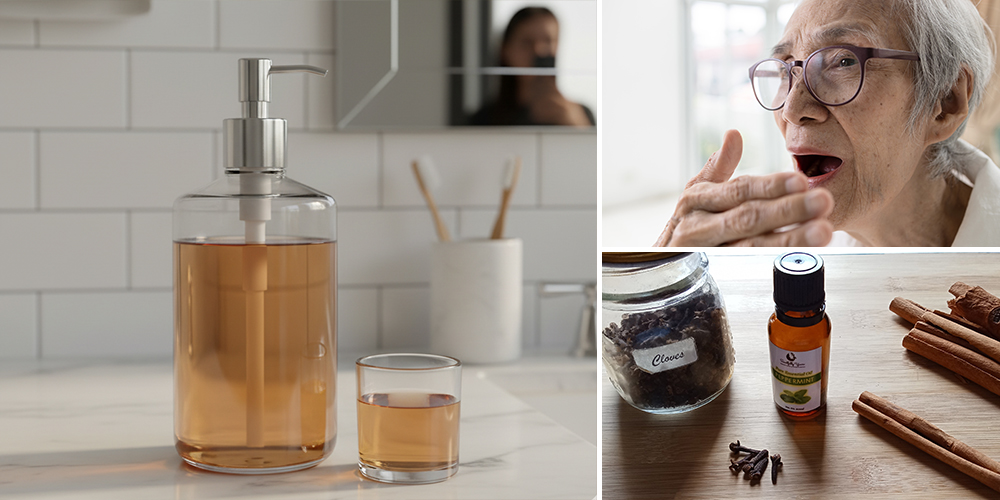
Herbal Mouth Rinses That Kill Bad Breath Fast
A mouth rinse is an essential but often overlooked part of oral hygiene. Many people are okay with brushing teeth, but flossing and mouth rinsing are seldom or never observed.
If you want to achieve overall oral health and get rid of bad breath, you must realize the necessity of mouth rinsing in an oral care routine.
The market has a wide selection of mouthwash products you can use. But if you want a natural mouth rinse that is not laden with alcohol, sugar, and chemicals, you may also prepare your own using common herbs and spices.
Causes of Bad Breath
Halitosis, or bad breath, is a hygiene issue that carries a deep and personal social stigma and embarrassment. Eventually, it will affect work, social life, and intimate relationships, potentially leading to anxiety and depression.
What many people do not understand is that while bad breath is typically a product of poor self-care, it may also be a symptom of underlying health problems.
Halitosis stemming from systemic health conditions can be particularly challenging to resolve. The body produces foul-smelling compounds that leak to the mouth if an individual has tonsil stones, sinus infections, and chronic dry mouth.
Acid reflux, GERD, systemic diseases like diabetes, kidney problems, liver disease, certain cancers, or metabolic disorders also cause bad breath.
The most common and persistent cause of bad breath is periodontal disease, and the effectiveness of the treatment depends on the particular case. For example, professional cleaning may treat some halitosis, while advanced cases require medication or even surgery.
Importance of Mouth Rinse
Mouth rinses do not treat halitosis caused by underlying medical issues. However, it may remove odor-causing bacteria in the mouth and provide a temporary fix.
Mouthwash also promotes good oral health and prevents teeth and gum damage that may lead to bad breath.
However, experts have debated the effectiveness of commercial mouth rinses for years. Alcohol-based products are likely to cause dry mouth and irritation that disrupts the balance of oral bacteria. Dry mouth only contributes to the exacerbation of bad breath.
The right mouthwash should support proper hygiene by providing thorough cleaning, preventing plaque buildup, and eliminating harmful bacteria. Fortunately, herbal rinses can deliver these benefits, and they are surprisingly effective!
Bad breath stemming from deeper issues. Whether it’s GERD, acid reflux, or something else entirely, requires understanding the full picture. Your mouth is just showing you what’s happening inside.
If you’re dealing with persistent halitosis that brushing and rinsing aren’t solving, it often points to something your digestive system is trying to tell you.
A comprehensive wellness guide that maps out these triggers, identifies the signs, and shows you exactly what’s causing your bad breath can be the missing piece.
That’s where understanding your whole health picture makes the real difference.
Herbs for Mouth Rinse
If you want a thorough gum and teeth cleaning, DIY herbal rinses are worth trying. Herbal blends provide total cleaning but are gentle on the mouth.
You can also control the amount of each ingredient you put in a homemade mouthwash, without worrying about alcohols and preservatives.
Some of the most effective mouth rinse ingredients include:
Clove
Clove, often marketed as clove oil, is popular for dental applications and tooth pain relief. Clove (Syzygium aromaticum) possesses strong antimicrobial, anesthetic, and antioxidant properties due to the presence of eugenol. Clove is a powerful herbal mouth rinse that helps flush bacteria and fungi, while freshening breath for total oral care.
A clove mouth rinse can be prepared by boiling cloves in water or infusing them in a carrier oil, such as olive or coconut oil.
But if you want a recipe that’s already been tested and optimized—one specifically designed for both tooth pain relief and long-term gum strengthening—there’s no need to reinvent the wheel. 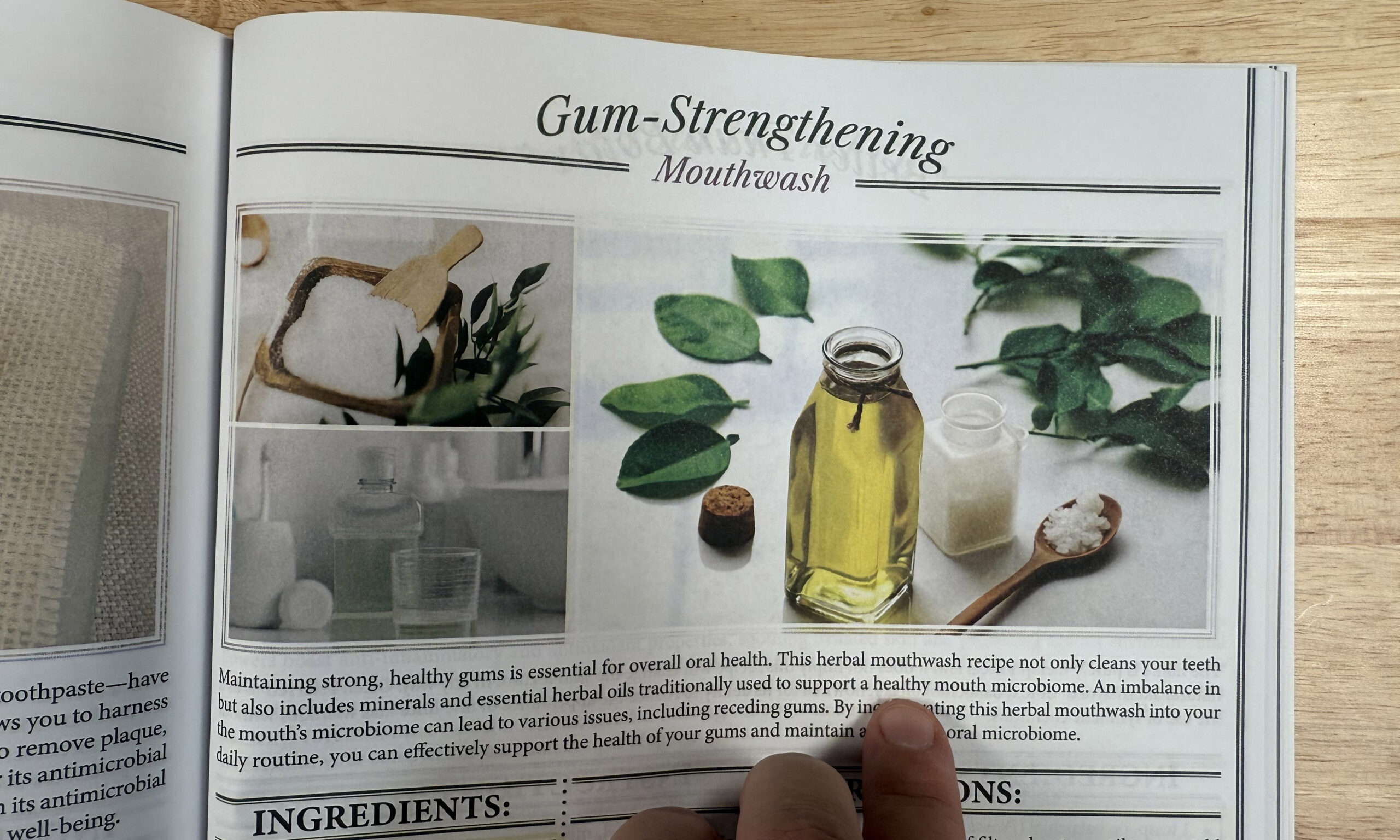
This proven formula combines clove with complementary herbs and essential oils to maximize effectiveness. It includes the exact measurements, step-by-step instructions, and guidance on adjusting ingredients for your needs. This is the kind of established recipe that takes the guesswork out of natural oral care and gives you results you can actually count on.
Peppermint
The fresh and minty flavor of peppermint reduces bad breath, according to a published clinical trial. Peppermint (Mentha piperita) inhibits plaque formation in the oral cavity, which may cause bad breath.
Boiling peppermint leaves and using them as a mouth rinse helps neutralize bacteria and prevent the development of gum disease. However, peppermint oil is more widely used than fresh herbs and is more effective due to its higher chemical concentration.
Tea Tree Oil
The leaves of tea tree (Melaleuca alternifolia) contain potent compounds like terpinene, linalool, and eucalyptol that give it its antimicrobial properties. However, you cannot simply brew tea tree leaves because the combination of these compounds is orally toxic.
Instead, tea tree essential oil, a distillate of tea tree, may be used. Adding tea tree to a carrier oil like coconut or olive makes a potent antimicrobial mouth rinse that supports better oral health.
Cinnamon
Some mouthwashes contain cinnamon (Cinnamomum spp.) due to cinnamon’s effective antibacterial, anti-fungal, and pain-relieving properties. Cinnamon freshens breath and reduces gum inflammation, as well as the risk of dental caries.
Cinnamon leaves contain a high concentration of eugenol. Its bark is rich in cinnamaldehyde that can inhibit bacterial growth. All parts of cinnamon are excellent for use in a DIY mouthwash. Among these parts, cinnamon bark or powder is the most accessible if the cinnamon plant is not available.
Neem
Neem (Azadirachta indica) has compounds like azadirachtin that can reduce bacterial growth and prevent tooth decay. According to an initial clinical trial, neem mouthwash is as effective as chlorhexidine in reducing gingivitis.
A herbal mouth rinse may be prepared by extracting the aqueous leaf extract and diluting it in water. Neem has a bitter taste and may require the addition of an artificial sweetener to make it more tolerable. However, a neem mouth rinse is also commercially available as a handy alternative to natural neem mouthwash.
Guava Leaves
Guava leaves and fruit are extensively used in tropical countries for oral care. Guava is a powerful antiseptic that mostly washes away surface germs and inhibits their growth. Eating its fruit or chewing its leaves cleanses teeth and freshens breath.
A decoction of its leaves also makes an effective mouth rinse to address many oral health problems.
Thyme
Thymol is a constituent compound in thyme (Thymus vulgaris) that supports oral health. It is an excellent antiseptic that is as effective as chemical antiseptics in removing bacteria in the oral cavity.
Thyme mouth rinse may treat mouth ulcers and reduce inflammation caused by gingivitis and other periodontal diseases.
Green Tea
Green tea (Camellia sinensis) is a heart and brain-friendly tea that supports overall body wellness. It also makes a great mouth rinse for freshening breath and promoting better dental health.
Brewed green tea inhibits the growth of bacteria that contribute to gum disease and tooth decay.
You can brew green tea fresh each time, but what if your gums are already receding? That’s when you need something more targeted.
 Most people don’t realize that this herb, when added to a natural mouthwash, can target the very bacteria that lead to cavities… and another one works on a different layer entirely, helping tighten and protect vulnerable gums.
Most people don’t realize that this herb, when added to a natural mouthwash, can target the very bacteria that lead to cavities… and another one works on a different layer entirely, helping tighten and protect vulnerable gums.
Click here to learn about those common plants.
Eucalyptus
Adding a few drops of eucalyptus oil and a pinch of salt to a glass of water creates a powerful mouth rinse for combating bad breath. It has antimicrobial and anti-inflammatory properties that flush out germs and combat tooth and gum diseases.
However, eucalyptus oil is toxic if ingested or not used properly. The safest way to prepare eucalyptus mouth rinse is to boil its dried leaves in water and then dilute the resulting tea before using it as a gargle.
Usnea
If you don’t care about taste and you simply want something that works, Usnea deserves a spot in your routine. It’s not the “minty fresh” type of mouth rinse ingredient, but it’s one of the most powerful natural antibacterials you can use for your mouth and throat.
This is why a lot of people add it to their own homemade mouthwash blends: it cuts down bacterial overgrowth fast, supports gum health, and keeps your throat protected. Especially in winter, when every cough and sneeze seems to follow you home.
Personally, I don’t mind the earthy taste at all, because I know what it’s doing. I just use a quick Usnea Spray to knock out bacteria in my mouth and throat, and it’s one of the simplest things you can do to support your oral health and overall immunity.
If you want something easy, natural, and strong enough to actually make a difference, this is the one I reach for.
Coconut Oil
Coconut oil pulling is an age-old Ayurvedic dental hygiene practice. It is also believed to not only boost oral health but also prevent systemic diseases, such as diabetes and asthma.
According to a systematic review, coconut oil pulling has a significant effect in reducing plaque and salivary bacterial count. The study suggests similar results with chlorhexidine use, but without the adverse effects and taste disturbance.
Homemade Herbal Mouth Rinse
Preparing your own mouth rinse without the added alcohol and chemicals is possible at home. Here is a straightforward recipe you can use as an everyday gargle to freshen breath.
Clove and Mint DIY Mouth Rinse
Ingredients
- 1 cup water
- 1 tsp whole cloves
- 1 cinnamon bark
- 4 drops peppermint essential oil
Steps
- Bring water to a boil with the cloves and cinnamon bark. Lower the heat and let the spices infuse for about 10 minutes.
- Pour the liquid into a glass and add the peppermint drops.
- Let it cool before using or store it in the fridge and use it within 1 to 2 weeks.

To use: Use this mouth rinse in conjunction with regular brushing and flossing to achieve the best results.
How To Make Any Personal Care Product Naturally
Most people never think about what’s hiding inside store-bought personal care products… until their skin starts reacting. Preservatives, drying alcohols, and cheap fillers sneak into almost everything on the shelves, and over time they can irritate your skin more than they help it.
When you make your own, the difference is night and day. You control every ingredient, every scent, every purpose.
And once you see how simple it is to create things like anti-eczema soap, natural deodorant, or even a gentle toothpaste in just a few minutes, you start wondering why you ever paid for the commercial versions.
What I love the most is having all these tried-and-tested recipes in one place. It makes replacing your entire medicine cabinet surprisingly easy, and you end up with safer products, better results, and a fraction of the cost. 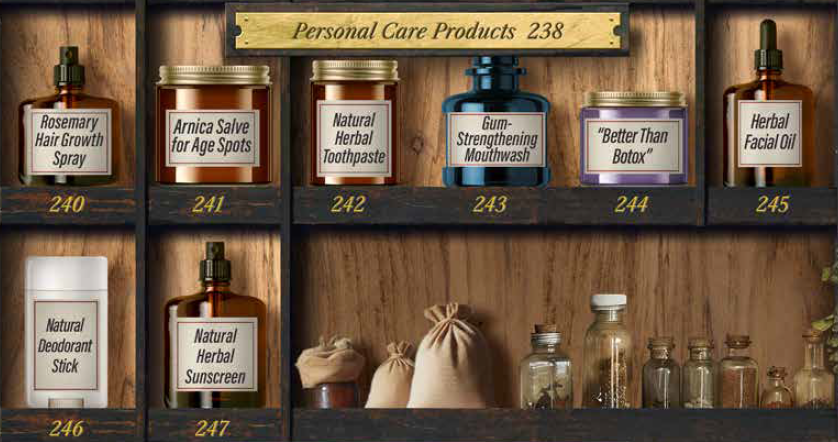
When you scroll through that table of contents, you’re basically looking at a ready-made home pharmacy: 250+ remedies for pain, sleep, gut issues, infections, hormones, skin, lungs, and more.
Each with simple, step-by-step instructions. Instead of guessing on Google, you just pick the shelf (nervous system, gut, heart, etc.), flip to the page, and make the remedy yourself in a few minutes.

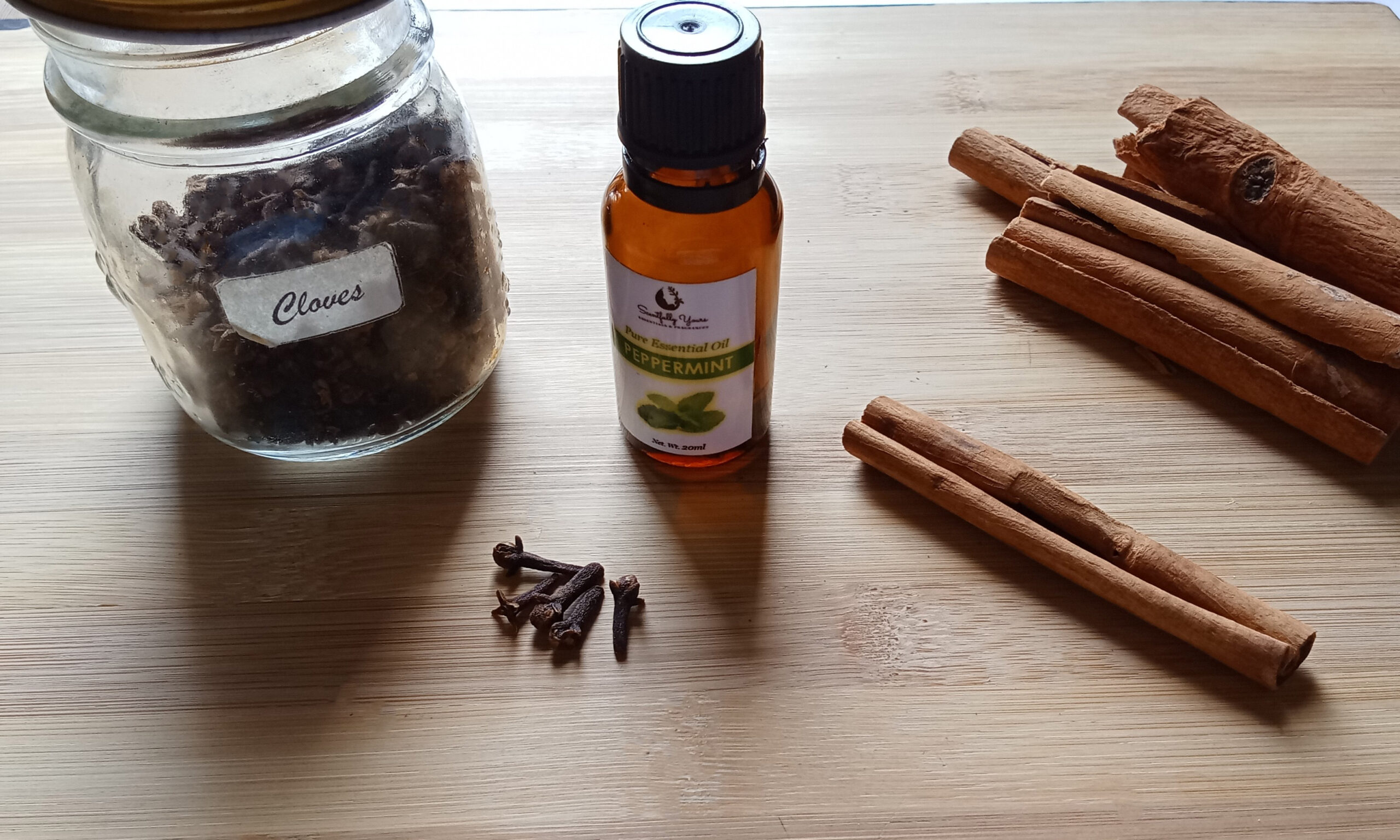
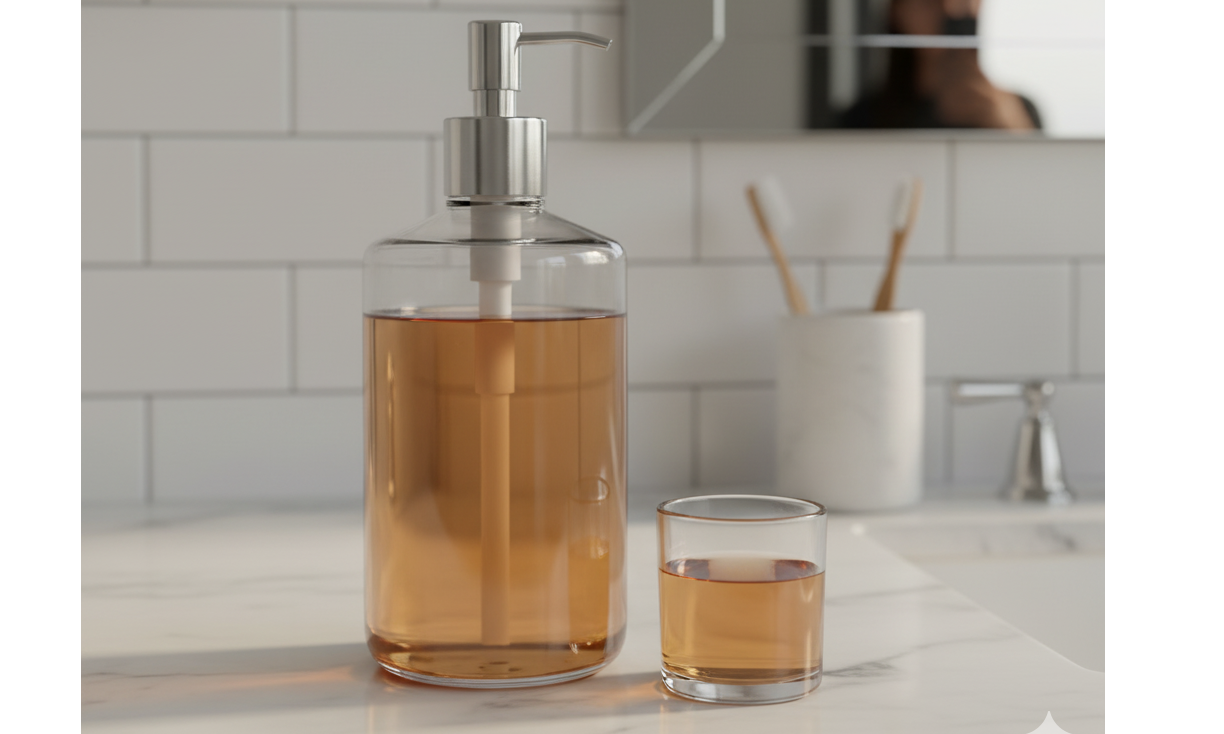
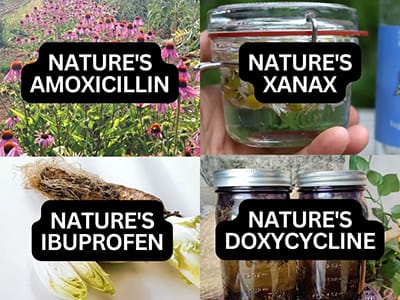
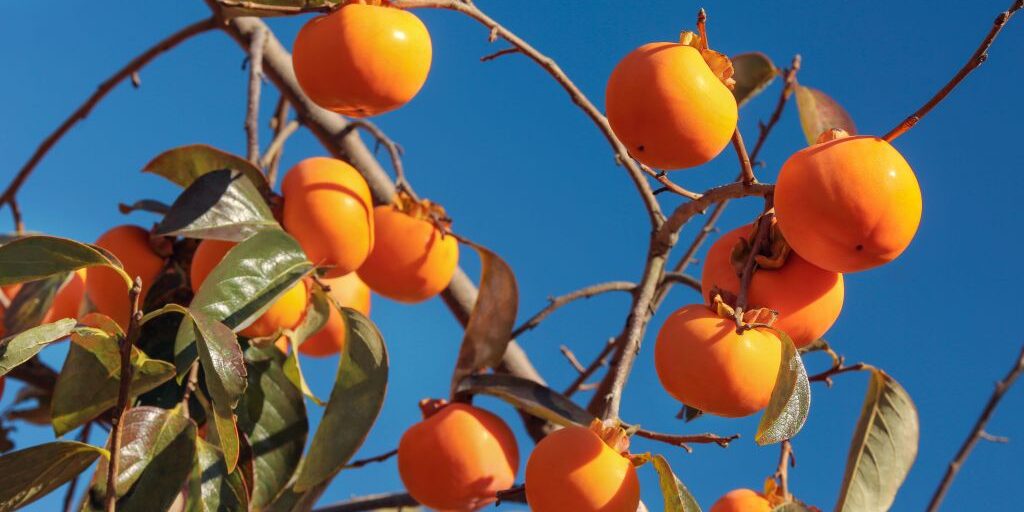
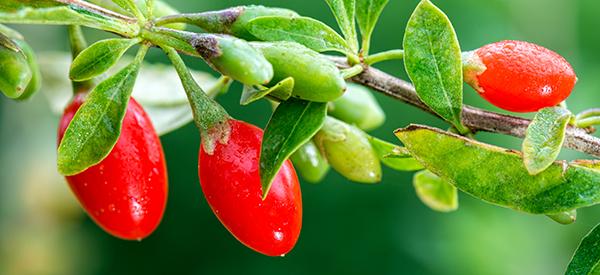
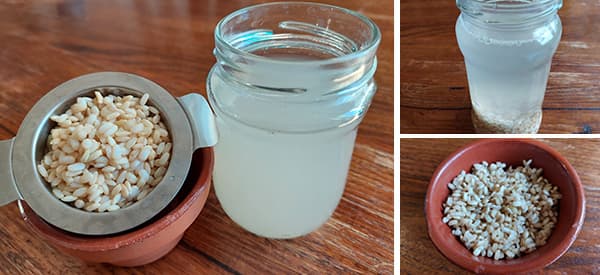
Do you know how to help with tinnitus? I hope so it hard to watch my husband go thru this. Sincerely Donna Sisk